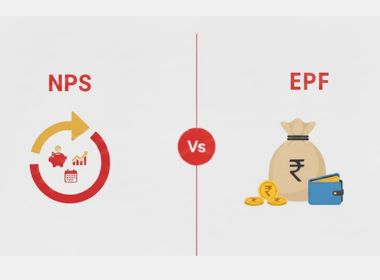Search Suggestions
- Gold Loan
- Money Transfer
- Mutual Funds

Term Insurance for Organ Transplants
Organs are crucial for the proper functioning of the human body. However, there are several health conditions and diseases that can affect the body’s organs or damage them. The increasingly sedentary lifestyle of modern times, where anxiety and stress are common by-products, has led to increased instances of several kinds of lifestyle diseases and health concerns. The occurrence of a critical illness, condition, or disease cannot be predicted, but with the many advancements in medical sciences, it is now possible to deal even with cases of organ failure.
What is an Organ Transplant?
A common procedure in today’s times, organ transplants are being successfully performed all across the world. In this procedure, major organs are harvested from a donor and placed inside the recipient’s body. The donor may be living or dead, depending on the organ being harvested. An organ transplant is only performed after several tests and examinations to confirm the recipient and the donor’s compatibility. Transplants can be performed for many important organs, including the heart, lungs, kidney, liver, pancreas, bone marrow, etc. Even though transplantation surgeries have become quite commonplace, the expenses associated with them can add up to a huge amount, effectively draining one’s savings and assets. Having certain precautions in place can go a long way in helping one safeguard themselves against such circumstances.
How a Term Insurance Plan Can Help
Considering that an organ transplant can be very expensive and quite burdensome on a patient, several term insurance plans offer provisions that allow individuals to avail coverage against critical illnesses and organ transplants. The cost of the transplant can be covered under the critical illness cover of a term insurance plan.
Critical illness riders are offered as an add-on benefit that can be purchased along with the base term plan by paying an extra, nominal amount as premium for the cover. Opting for a critical illness cover can be very beneficial as it helps extend the financial coverage offered by the term insurance plan. So, in the unfortunate event where the policyholder is diagnosed with a critical disease or illness, which may or may not lead to them requiring an organ transplant, the critical illness cover can help meet the expenses that the treatment entails.
Benefits of Buying a Term Plan with a Critical Illness Rider
Providing financial coverage against the expenses of organ transplants, including the pre- and post-hospitalisation charges, a critical illness cover can prove to be very beneficial. The advantages may include:
- Affordable Extended Coverage: A primary benefit that comes with this rider is the extended financial coverage that the policyholder gets. Furthermore, this coverage is also very affordable, which makes it easy for the policyholder to buy the add-on benefit over the base term plan.
- Lump sum Payment: Expenses involved with critical illness treatments or organ transplantation always require a sizeable amount of money. That is why, most critical illness riders offer a lump sum payment under their terms, so one can have the amount handy, enabling them to pay as and when required.
- Fixed Premium: After purchasing a term insurance plan with a critical illness rider, the premium for the coverage remains the same throughout the policy term. This means that the premium is not increased in case the policyholder is diagnosed with a critical illness.
- Access to the Best Medical Care: With the financial security provided by critical illness covers in place, the policyholder can rest assured that they will be able to avail the best of medical care, without having to worry about how expensive it is. This also helps improve one’s chances of survival.
- Tax Benefits: Under section 80D of the Income Tax Act (1961), the premium paid for a term insurance plan is eligible for tax benefits.
Insurance Benefits Payouts
The policyholder can choose from three basic payment methods for receiving the coverage amount under the critical illness rider. These are:
- Lumpsum Payout: The most popular payout option, this involves paying the eligible sum insured to the policyholder in a single, lumpsum payment.
- Lumpsum + Fixed Monthly Payments: In this type of payout, a pre-decided part of the benefits is paid out to the policyholder in a single lump sum payment, and the remaining amount is paid out monthly, over a certain period of time, in the form of fixed payments.
- Lumpsum + Increasing Monthly Payments: This type of payout also involves a lump sum payment and regular monthly payments by the insurer. However, in this case, the amount that is paid out as the regular monthly payment increases with each passing year, up to a set period, which is decided by the policyholder at the time of purchasing the term insurance plan with the critical illness rider.
Who Should Buy the Critical Illness Cover?
Critical illness cover for a term insurance plan can be purchased by anyone. However, for some, it is all the more important to ensure that they have the extended coverage offered by this rider in place:
- Earning Members of the Family: People who have several dependents in the family should ensure that they buy a critical illness cover with their term plan, so they can secure the financial future of their family in case of an eventuality.
- People with a History of Illnesses: There are several types of hereditary conditions and illnesses that can flare up at any time. People who are at a higher risk of developing critical illnesses due to their family’s medical history should also consider this rider.
- Those Above the Age of 40: As people grow older, their risk of developing chronic illnesses also increases. That is why critical illness covers for term plans are advisable.
Opting for a critical illness rider with a term insurance policy can be extremely beneficial, not only for organ transplants but also for situations where the policyholder is diagnosed with any of the critical illnesses that are covered by the add-on benefit. It provides policyholders with a financial safety net that ensures peace of mind.
- Insurance
- Group Insurance
- Health Insurance
- Home Insurance
- Vehicle Insurance
- Life Insurance
- Travel Insurance
- Shop Insurance
CATEGORIES
OUR SERVICES
-

Credit Score
-

Gold Loan
-

Personal Loan
-

Cibil Score
-

Vehicle Loan
-

Small Business Loan
-

Money Transfer
-

Insurance
-

Mutual Funds
-

SME Loan
-

Corporate Loan
-

NCD
-

PAN Card
-

NPS
-

Custom Offers
-

Digital & Cashless
-

Milligram Rewards
-

Bank Mapping
-

Housing Finance
-

#Big Business Loan
-

#Gold Loan Mela
-

#Kholiye Khushiyon Ki Tijori
-

#Gold Loan At Home
-

#Sunherisoch
RECENT POSTS

Understanding Gold Bees: How it Works, Net Asset Value, Returns and More
Know More
Multi Cap and Flexi Cap Mutual Funds: How Are They Different?
Know More
Online Personal Loan vs. Offline Personal Loan - Which Is Better for You?
Know More
10 Tips to Improve Chances of Personal Loan Approval
Know More
10 Factors Affecting Mutual Fund Performance Explained Simply
Know More
10 Key Factors That Affect Your Personal Loan EMI
Know More
What Is Fine Gold? Meaning, Purity (999), Uses & Price Explained
Know More
Gold vs Silver: Which is Better as an Investment?
Know More
Why Gold Is a Safe Haven Asset: Meaning, Benefits & Real Examples
Know More
Gold or Bitcoin - Best Investment for Value Retention
Know MoreFIN SHORTS

The Best 7 SIF Funds of 2026: A Better Way to Invest
Know More
Gold Price Hits ₹1,40,000: How It Impacts Gold Loan Amounts
Know More
How to Check Loan Number: Step-by-Step Process
Know More
How to Open an SIP Account: Online and Offline Process
Know More
How Do I Apply for MSME Certification Online in India?
Know More
7 Important Reasons to Choose Hallmark Gold When Buying Jewellery
Know More
What Are Co-Pay and Deductibles in Insurance Policies?
Know More
Should You Take a Loan Against Your Mutual Fund or SIP?
Know More
Top 5 Best Mid-Cap Mutual Funds to Watch in 2026
Know More
Are Personal Loans Right for Retirees? Key Points to Consider
Know More
What Happens to a Personal Loan After the Borrower Dies?
Know More
Best Loan Choices for Credit Scores of 580 and Below
Know More- South +91 99469 01212
- North 1800 313 1212





